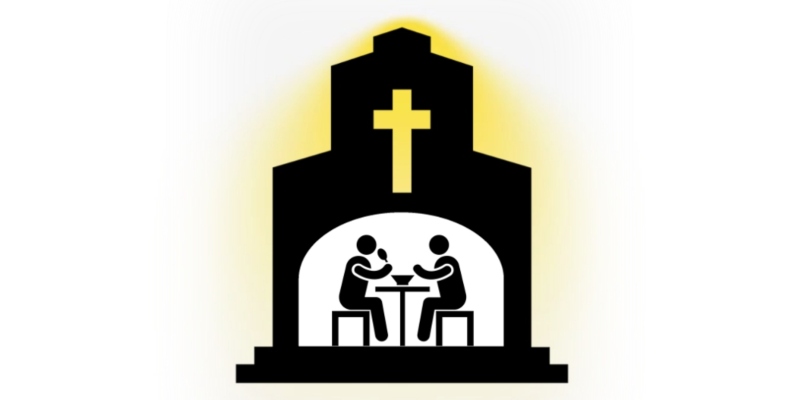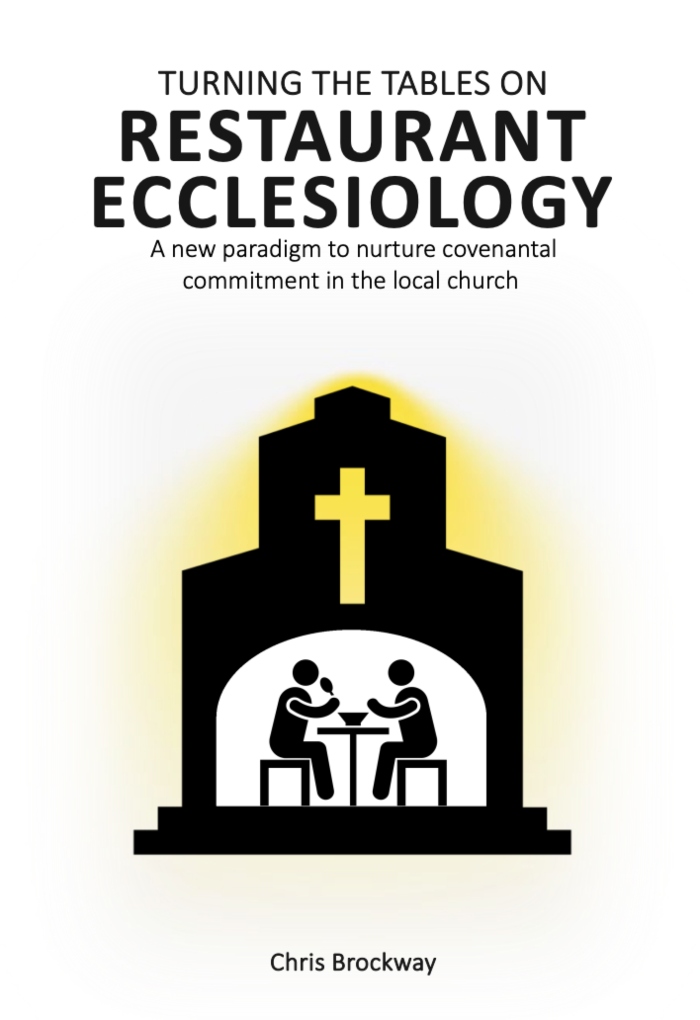Turning the tables on restaurant ecclesiology
Baptist minister Chris Brockway wants to nurture covenantal commitment in the local church, after realising the church experience for both leaders and congregation can be a consumeristic one - akin to life in a metaphorical restaurant

Is church membership the best idea we Baptists have ever had, or is it just an unbiblical relic from another era? Does it still have value, especially if we can underpin it within covenantal commitment?
Can our churches nurture commitment, not only among the ‘grey-warriors’ who have ‘commitment’ written into their DNA but also among the more commitment phobic pre-SAGA generations?
After more than two decades as a church leader, I’m committed to primarily organising the local church around a three-fold trajectory towards what I would argue to be God-given priorities of spiritual growth, numerical growth and augmented missional engagement.
Our practice in the local church is necessarily human-resource dependent, profoundly relational and principally voluntary.
To my frustration, my hyperbolised analogous conclusion is that much of the time, the contrasting experience for both leaders and congregation is akin to life in a metaphorical restaurant.
Based primarily upon my personal experience and anecdotal accounts of other church leaders, my metaphorical ‘customers’ decision to frequent our ‘restaurant’ oftentimes appears to be unreservedly determined by their personalised and particular preferences. Attendees will conscientiously consider the type of ‘cuisine’ served, having first conducted online research paralleled to reading reviews on Trip Advisor, alongside off-line research among friends and family.
Then, if all of the above is deemed satisfactory, heuristic judgements will be inaudibly made for better or worse. This initial critique might include the location, ease of parking, quality of hospitality, standard of facilities to entertain children, and overall ambience.
Ultimately such matters are secondary to concerns around the excellence of the analogous ‘food and drink’ served.
‘Customers’ sit down at a ‘table,’ most often among the individual(s) they came with (or at least with others like them) and, although subliminally aware of the other ‘tables’ contributing to the overall atmosphere, the majority of ‘customers’ are not seeking to engage pro-actively with anyone beyond their group.
From beginning to end, such is the culture of many a local church: ‘customers’ expect excellent service, anticipating that the ‘restaurant’ will serve their preferred menu choices to meet their exacting and bespoke preferences. When the ‘customer’ departs, subject to feeling well-fed, they may become loyal repeat customers who frequent, alongside other satisfied customers, until such time standards fluctuate, their tastes alter or ‘the management’ changes.
If ‘the customer’ is episodically left wanting or dissatisfied, they reserve the right to leave, generally without causing perspicuous offence or enmity, concluding that their experience is undeserving of repetition or no longer gratifying their specific and variable tastes.
Sound familiar..?
While such a description is without doubt hyperbole to make a specific point, the leadership experience is equally reminiscent of a restaurant, albeit conversely from a serving rather than consumeristic perspective. For example, staff and ministry teams invest inordinate amounts of time making preparations, seeking to eliminate any hinderances whatsoever to customers experiencing outstanding hospitality.
‘Managers’ persistently worry about online and offline critique and then, from the moment ‘the customer’ arrives, like restaurant waiting-staff, ministry teams figuratively dash from table to table, seeking to understand and gratify the multifaceted requirements of the different groups, rarely unifying the disparate ‘diners’ gathered.
Throughout, the ‘front of house’ experience is incessantly perfected while seeking to contain multi-dimensional governance intricacies beyond public view.
Succinctly stated and somewhat unwittingly, our single-minded ministry philosophy can become the safeguarding of customer loyalty and upholding tradition while pioneering new ideas, in the hope of extending this excellent customer-focused service to new ‘diners’ so that the whole enterprise has sustainable growth year after year, alongside a distinguished reputation worthy of the brand’s founder.
Such a focus might be an excellent strategy for a restaurant, but is it sincerely befitting of the church of Christ? Is such an approach even satisfactorily meeting the spiritual and relational needs of the majority of the congregation?
What place is there for confrontation, rebuke and challenge, since, ultimately, the priority of leadership ought to be pleasing God, not people?
Are these symptoms of contemporary culture, and to what extent should we be obliging them?
 Contained within the pages of Turning The Tables On Restaurant Ecclesiology, is an attempt to explore the extent to which church membership, and more specifically covenant commitment, can be an effective tool to reorientate the church, especially the under 50s, towards a healthier expression of commitment.
Contained within the pages of Turning The Tables On Restaurant Ecclesiology, is an attempt to explore the extent to which church membership, and more specifically covenant commitment, can be an effective tool to reorientate the church, especially the under 50s, towards a healthier expression of commitment.
While exploring the significance of covenantal theology in founding Baptist ecclesiology, I identify the theological basis of covenants before proposing a new phrase, ‘koinocovenantal commitment.’
This phrase seeks to redeem and communicate the inseparable and complementary concept of covenant with commitment and vice versa, conveying the cruciform, God-ward and other-ward, nature of relationships captured in biblical covenants.
The coining of ‘koinocovenantal commitment’ is an attempt to redeem an authentic understanding of covenant within a proposed new ecclesiological model - ‘Family Table Ecclesiology’ - and effectually counter postmodern values of individualisation, consumerism, commitment phobia, anti-authoritarianism and the homogenising effects of globalisation.
Chris Brockway is Minister (Team Leader) of Christchurch Baptist Church and the moderator of Southern Counties Baptist Association. He can be contacted via chris@christchurchbaptist.org.uk
Restaurant Ecclesiology is priced at £7.99 and can be purchased from Christchurch Baptist Church by visiting: christchurchbaptist.org.uk/restaurantecclesiology
Chris’ book is also available in paperback or Kindle via Amazon
Do you have a view? Share your thoughts via our letters' page.
Baptist Times, 08/11/2023